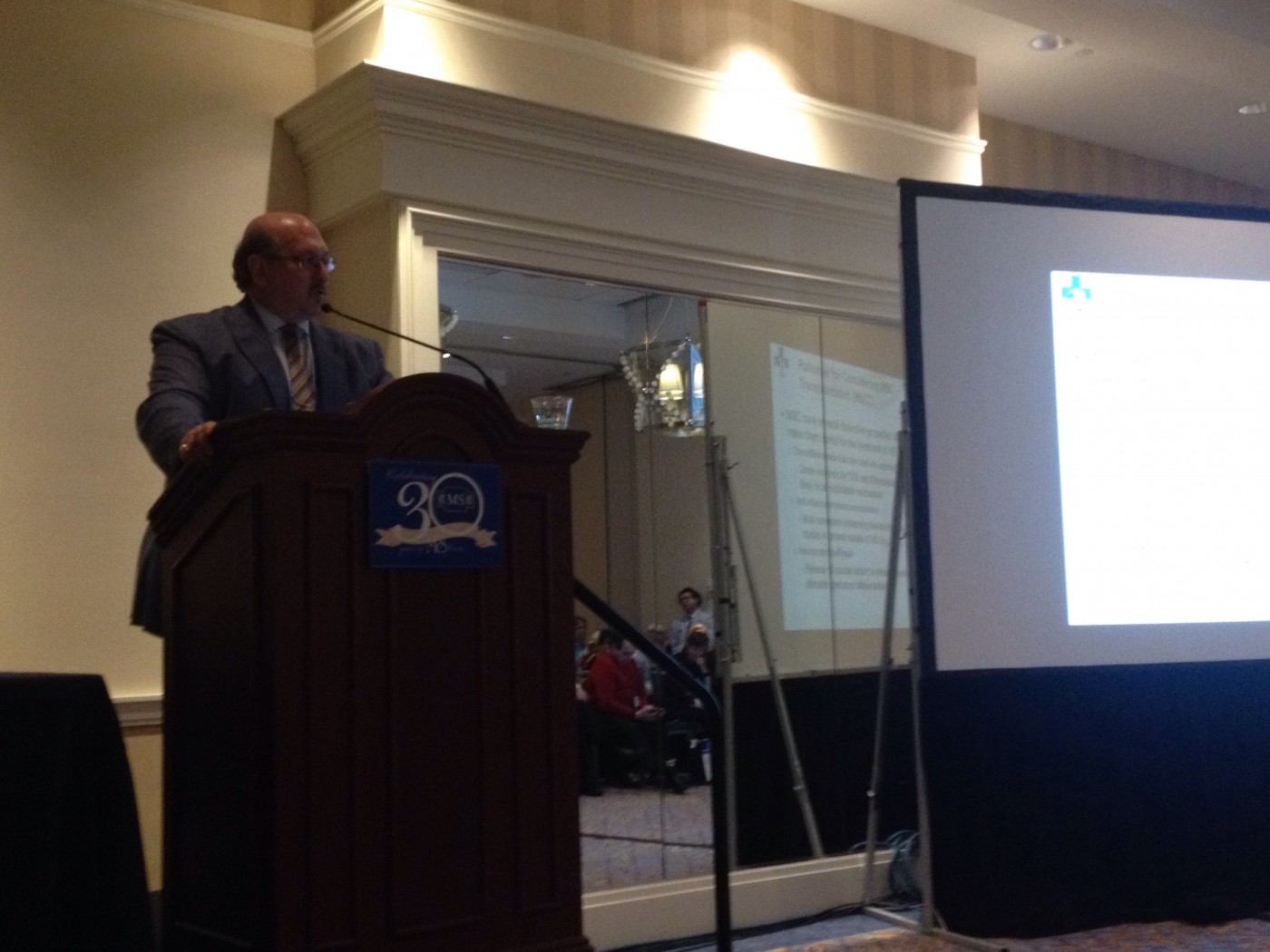#CMSC16 – Stem Cell Therapy in MS: Exclusive Interview with Dr. Mark Freedman
Written by |

On June 2, a symposium titled “Cell-based therapies in MS” was presented at the 2016 Annual Meeting of the Consortium of Multiple Sclerosis Centers (CMSC). One of the speakers was Dr. Mark S. Freedman, professor of medicine (neurology) at the University of Ottawa in Canada, who discussed the use of stem cells as a therapy in MS.
In his talk titled “Blood Derived Stem Cells in the Treatment of MS,” Freedman explained that the bone marrow niche is a source of stem cells. Mesenchymal stem cells (MSC) are a “heterogeneous subset of streams stem cells isolated from several adult tissues (…) [that] retain the ability to differentiate into cells of mesoderm lineage.”
Freedman said “MSC have several distinctive properties that might make them useful for the treatment of MS: transdifferentiation, anti inflammatory/immunomodulatory, neuroprotection/repair.”
Treatment of a mouse model of MS — the experimental autoimmune encephalomyelitis (EAE) mouse — with human MSCs from the bone marrow, has been shown to enhance oligodendrogenesis (the formation of oligodendrocytes, the cells producing myelin in the central nervous system) and to reduce astrogliosis (an abnormal increase in the number of astrocytes due to the destruction of nearby neurons), Freedman said.
Freedman also discussed the “MEsenchymal Stem cell therapy for CAnadian MS patients” (Mark S. Freedman) study, a Phase 2a clinical trial, part of an international MSC research effort encompassing nine countries.
The goal of MESCAMS is to determine if treatment with a single intravenous infusion of autologous MSC (cells originating from the same person receiving treatment) is safe in MS patients, either relapsing or progressive forms, and if it can reduce brain inflammation, brain lesions, brain atrophy, relapse rate, and slow disability progression. The potential of MSC to stimulate neuroprotection or repair will also be investigated.
“Results of all national trials will be pooled and should provide enough statistical power to draw conclusions regarding the safety and efficacy of autologous MSC in MS,” he noted.
Freedman showed results from a previous study (MSBMT) in which neurological recovery was achieved after treatment with immunoablation followed by and autologous stem cell transplantation. The treatment also halted the damage induced by acute inflammation, further widespread damage associated with progressive disability and atrophy, and allowed or promoted disability recovery. This therapeutic strategy also eliminated the need for further treatment with disease modifying therapies (DMTs).
“Not a single patient required DMTs after therapies. They are taking nothing,” Freedman said.
Multiple Sclerosis News Today had the opportunity to interview Freedman after his presentation at CMSC 2016, and discuss the goals of the MESCAMS study, the advantages of stem cell therapies, and the possible future for these therapies.
“The sky is the limit” he noted. “We are able to make any cell we want. The next major hurdle is to be able to show that those cells, once put in, (…) are going to renew functionality, and maybe counteract wherever the disease’s process is that we are talking about, be it a genetic disorder, be it an acquired inflammatory disease like MS.”
The CMSC 2016 Annual Meeting is June 1-4 at the Gaylord National Resort and Convention Center in National Harbor, Maryland.


